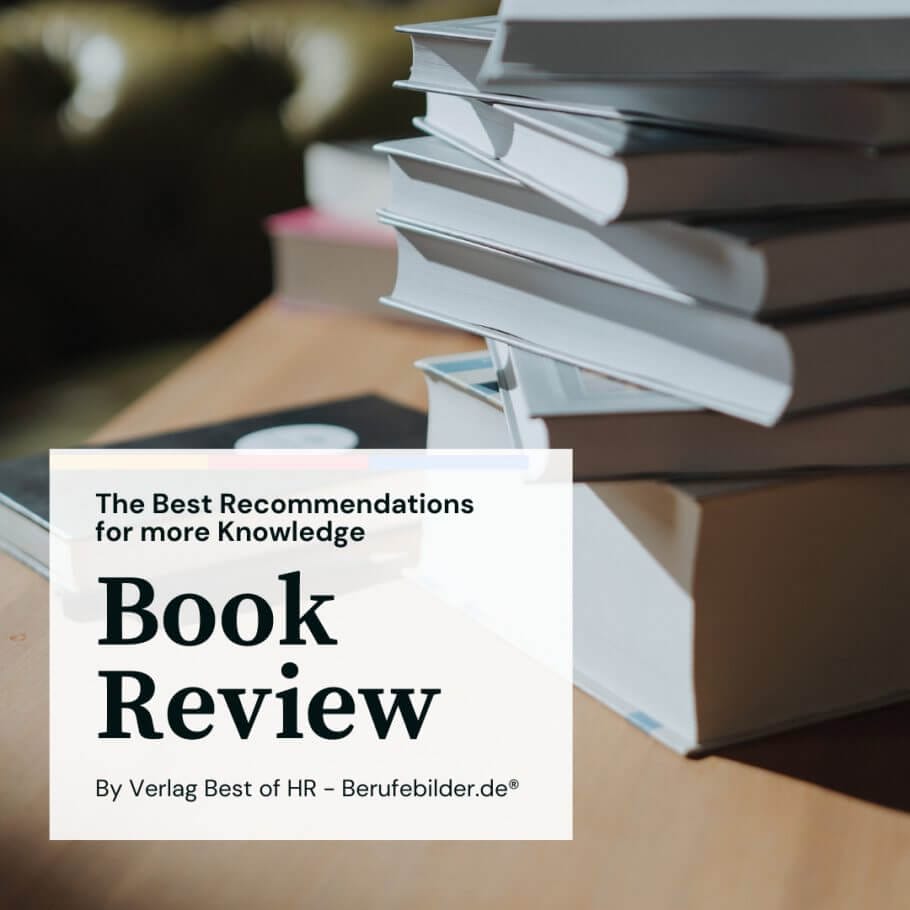For their successful, good life Information you really need: Government-funded publisher, awarded the Global Business Award as Publisher of the Year: Books, Shops, eCourses, data-driven AI-Services. Print and online publications as well as the latest technology go hand in hand - with over 20 years of experience, partners like this Federal Ministry of Education, customers like Samsung, DELL, Telekom or universities. behind it Simone Janson, German Top 10 blogger, referenced in ARD, FAZ, ZEIT, WELT, Wikipedia.
Disclosure & Copyright: Images created as part of a free collaboration with Shutterstock.
Working scientifically in 8 steps: From text structure to editing
By Simone Janson (More) • Last updated on October 21.04.2024, XNUMX • First published on 26.02.2016/XNUMX/XNUMX • So far 4823 readers, 1150 social media shares Likes & Reviews (5 / 5) • Read & write comments
mastering scientific work decide be - not only for the successful completion of a degree, but also for the next one Career. What should you pay attention to?

- Why is scientific writing important?
- Somehow you get through?
- Step 1: Find and narrow the topic
- Step 2: Work out the research question and method
- Step 3: Search for Literature
- Step 4: Building a scientific work
- Step 5: Scientific Writing
- Step 6: Cite
- Step 7: Format
- Step 8: Proofreading
- Top books on the subject
- Read text as PDF
- Advice on success, goal achievement or marketing
- Book eCourse on Demand
- Skate eBook as desired
Why is scientific writing important?
Whether term papers, bachelor and master theses or even a doctorate: Scientific work is one of the basic skills that one should acquire during a degree. And the importance of which is often underestimated. Because they differ significantly from the techniques when it comes to building a Article to write.
Because scientific working techniques are not useful for a career in science, but are also in demand in many other professions. Who successfully wants to be, it should master concepts too draw up, to structure theses, to formulate and substantiate arguments in writing and to quote them correctly.
But it is precisely these numerous formal hurdles that are a challenge for many students. As an example, only the citation method is mentioned here, which can differ considerably depending on the subject area - confusion inevitable. Students often do not have the time to familiarize themselves fully with this. Because in the schooled bachelorSystem a lot falls by the wayside - not least the well-founded scientific examination of a question that really interests you.
Somehow you get through?
The books on the subject (advertising)
That's why many of them are moving somehow through house and graduation work. Or they resort to untrustworthy service providers, who take away the unpleasant work, but they are also blackmailable. The impact of such youthful sins has been shown by cases like Karl-Theodor zu Guttenberg, Anette Schavan, and various other politicians who, in part, have been denied their doctoral thesis after decades.
It would therefore be better to deal with the topic of scientific work in a fundamental and well-founded manner until you can master it in your sleep, so to speak. If the universities do not offer sufficient supervision here, private mentoring or Coaching help to learn how to work scientifically step by step. An overview of what is important when it comes to the techniques of scientific work:
Step 1: Find and narrow the topic
Finding a topic is always the starting point. As a rule, the framework is already given by the course. A detailed treatise on a small sub-area is often more suitable for academic work, while superficial texts tend to be rated worse. The topic should also be manageable in the given time and therefore not be too extensive. Useful: Im Conversation narrow down the topic precisely with the supervisor and thus avoid misunderstandings.
Attention: The importance of an exact choice of topics as well as the research question (see next step) is often underestimated: the more precisely the topic is delineated, the easier it is to organize and write the work afterwards.
Step 2: Work out the research question and method
Discounts for your success (advertising)!
Once the topic has been determined, the next step should be the research question and Method can be found so that you know how to edit the topic. All ideas should be logged and evaluated for relevance. Help with Methods such as brainstorming, clusters, mind and concept maps.
Based on this collection, a thesis is formulated that needs to be checked in the course of the scientific work - the central research question. This results in the methodology: One speaks of literature work when one can answer a question based on the available specialist literature. One speaks of empirical work when one's own data is collected in order to answer the question. This is done with the help of data collection methods (experiment, questionnaire, observation, field research, analyzes).
Step 3: Search for Literature
In addition to the choice of topic and the working out of the research question is the search for the specialist literature. It is necessary to set the theoretical framework. Specialized literature usually refers to earlier research results and specialist publications; On the other hand, you should not use popular scientific texts. It is advisable to summarize the search results in a list to keep track.
Suitable literature can be found in specialist and university libraries. You shouldn't just do that Online– but also use the library's keyword catalogue, because older works are often not listed in the online catalogues. National and international general catalogs are also useful when searching for literature.
Bibliographies, directories or specialist publications that list literature references are helpful for finding journal articles, for example. Also in Internet many sources can be found, but their scientific nature should be checked.
Step 4: Building a scientific work
A scientific work follows an exact construction. It usually consists of: cover sheet, list of contents and abbreviations, affidavit, abstract, preface, main body, bibliography and bibliography and appendix.
The affidavit only needs to be signed for theses and dissertations. It explains that the paper was written without outside help. The abstract, also known as the summary, provides information about what is being done in the work and the results that result from it.
In extensive scientific work (especially dissertations and habilitations), it is possible and often customary to write a preface with personal motivations and thanksgiving. Finally, the main text is divided into the introduction, the main part, and the key part, whereby the introduction is a kind of signposting through the main part, whereas the key part summarizes the most important theses.
Step 5: Scientific Writing
The scientific writing style is characterized by complexity, foreign words and a high linguistic ambition. This makes these texts more difficult to read, understand and write. Nevertheless, this writing style is necessary to convey information objectively and clearly.
Usual are e.g. B. the use of the passive voice, where the reader is not addressed directly. I-formulations should also be avoided. The use of technical terms is necessary to describe the matter precisely. Word repetitions in scientific texts are not necessarily a stylistic error, because the same technical terms are always intended to refer to the same facts. Several short sentences instead of convoluted sentences increase readability. Slang, dialect, irony and Humour may not be used in academic papers.
Step 6: Cite
A scientific text must always state unequivocally which ones ideas, statements and trains of thought were taken literally or indirectly from external sources. These must be identified by references to literature and sources so that the reader can check the facts at any time. You should therefore write all source information for a quote immediately, this saves you from tedious searching afterwards.
Not only written statements must be quoted, but also figures, tables or data. Just general knowledge and facts leading to the basic Background belonging to the field of study do not have to be taken. Who for sure want to go that he has not unknowingly plagiarized should have one Commission a specialized service provider with the correction.
There are different ways of quoting: In the German way of quoting, there is a superscript number after each quotation, which refers to a footnote with the source reference. With the Harvard method, the source references are written as a short reference that refers to the bibliography, directly after the citations in brackets. Which citation is used depends on the conventions of the respective institute or department. It is best to clarify this in advance with the supervisor.
Step 7: Format
The formal overall impression of a work can lead to a poorer evaluation. Because in an unconventional layout the reader is distracted from the optics of the work, concentrating on the essentials is more difficult. In addition, the work should also show that the author dominates the scientific conventions. Many institutes provide guidance on the following: They usually contain information on page margins, font size (usually 12 Pt) and font (Arial or Times New Roman), block sentence, line spacing (mostly 1,5 lines), formatting of headings and footnotes.
Important: Headers, directories, footnotes and tables should have a uniform form. Sources and directories should be error-free, consistent and complete.
Step 8: Proofreading
A scientific work should not only be formally uniform and conform to the conventions, the author should also show that he can deal with scientific sources well and be able to write a linguistically sound text. Typographical errors, spelling mistakes, grammar errors and a bumpy expression should not occur in scientific work.
Since one does not see its own mistakes, it helps to correct or correct the work of third parties. Either the fellow students, friends or family members who do not have enough time often enough, or a professional proofreader or lecturer. The latter are usually experts who are familiar with scientific conventions and thus better point to erroneous formal design, incorrect citation, or unclear formulations, as laymen.
Regarding the scope, the following difference should be noted: A spelling, grammar and punctuation check is offered as “proofreading” or “proofreading”. An "editing", on the other hand, also includes a stylistic review to ensure that your formulations are understandable and concise. You should clarify in advance exactly which ones Tasks a proofreader or editor takes over.
Top books on the subject
Read text as PDF
Acquire this text as a PDF (only for own use without passing it on according to Terms and conditions): Please send us one after purchase eMail with the desired title supportberufebilder.de, we will then send the PDF to you immediately. You can also purchase text series.
4,99€Buy
Advice on success, goal achievement or marketing
You have Ask about career, Recruiting, personal development or increasing reach? Our AI consultant will help you for 5 euros a month – free for book buyers. We offer special ones for other topics IT services
5,00€ / per month Book
Book eCourse on Demand
Up to 30 lessons with 4 learning tasks each + final lesson as a PDF download. Please send us one after purchase eMail with the desired title supportberufebilder.de. Alternatively, we would be happy to put your course together for you or offer you a personal, regular one eMail-Course - all further information!
29,99€Buy
Skate eBook as desired
If our store does not offer you your desired topic: We will be happy to put together a book according to your wishes and deliver it in a format of yours Choice. Please sign us after purchase supportberufebilder.de
79,99€Buy
Here writes for you
 Simone Janson is publisher, Consultant and one of the 10 most important German bloggers Blogger Relevance Index. She is also head of the Institute's job pictures Yourweb, with which she donates money for sustainable projects. According to ZEIT owns her trademarked blog Best of HR – Berufebilder.de® to the most important blogs for careers, professions and the world of work. More about her im Career. All texts by Simone Janson.
Simone Janson is publisher, Consultant and one of the 10 most important German bloggers Blogger Relevance Index. She is also head of the Institute's job pictures Yourweb, with which she donates money for sustainable projects. According to ZEIT owns her trademarked blog Best of HR – Berufebilder.de® to the most important blogs for careers, professions and the world of work. More about her im Career. All texts by Simone Janson.
10 responses to "Academic work in 8 steps: from text structure to editing"
-
We are an editor and we are happy to receive a like or share - here is our website: - Recommended contribution 8lyEZXYY4M
-
RT @Lektorenverband: Successful article, including an explanation of the difference between editing and proofreading (for academic ... http ...
-
RT @Lektorenverband: Successful article, including an explanation of the difference between editing and proofreading (for academic ... http ...
-
RT @Lektorenverband: Successful article, including an explanation of the difference between editing and proofreading (for academic ... http ...
-
RT @Lektorenverband: Successful article, including an explanation of the difference between editing and proofreading (for academic ... http ...
-
Successful article, in particular the explanation of the difference between proofreading and proofreading!
-
Successful article, in particular the explanation of the difference between proofreading and proofreading!
-
Successful article, including an explanation of the difference between editing and proofreading (for academic ... - Recommended contribution QpODjH0TmF
-
Scientific work in 8 steps -2/2: From structure to editing by Simone Janson: Wiss ... - Recommended contribution gXQNNkg2xl #Profile #Production
-
Working scientifically in 8 steps -2/2: From structure to editing by Simone Janson: Scientific A ... - Recommended contribution 4gn4nCWRE5



















Post a Comment